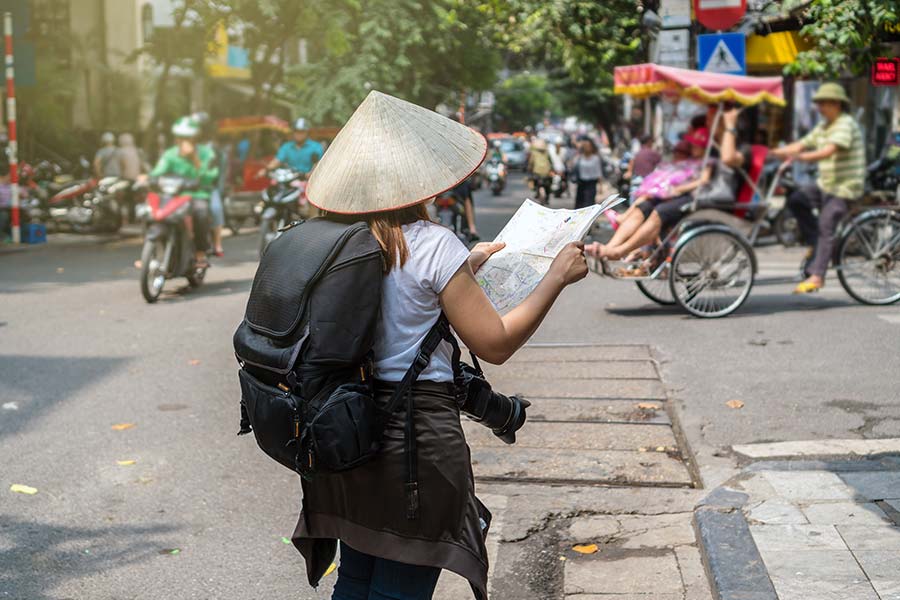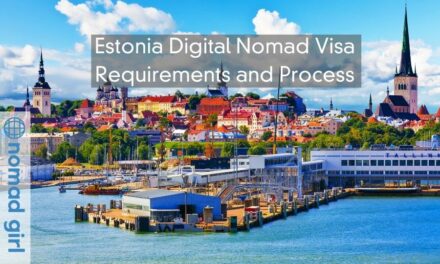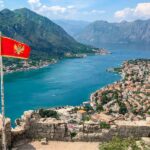The allure of unfettered exploration has led to a rise in the nomadic lifestyle among many in today’s generation. The siren call of distant lands, vibrant cultures, and the promise of personal growth beckon to those with a wandering spirit.
And while this lifestyle offers freedom and new experiences, it also comes with its own set of challenges. Dive into the world of modern nomadism and discover how to make the most of this unique way of life.
Understanding the Nomadic Lifestyle
A modern nomad is not just someone who is perpetually on vacation; they live and breathe travel, blending work and leisure seamlessly. They differ from tourists, who may flit from one location to another for short durations, or expatriates, who may settle in a foreign country for years.
Nomads are in a unique middle ground, soaking in cultures and experiences as they go. Their motivation often stems from a desire for freedom, continuous learning, and a hunger for diverse experiences.
While the idea of a nomadic existence conjures images of ancient tribes moving from one territory to another, today’s version is vastly different but holds the same core principle: a life in motion.
Technology has played a pivotal role in redefining nomadism. With the world interconnected as never before, geographical boundaries have blurred. One can attend a business meeting in London virtually from a serene beach in Thailand or collaborate on a project while sipping coffee in a Parisian café.
However, it’s not just about picturesque settings or whimsical journeys. It’s a profound commitment to learning, evolving, and adapting.
Every destination offers lessons — be it the patience one learns while navigating bureaucratic processes in a new country or the humility experienced when relying on the kindness of strangers.
Moreover, this lifestyle also teaches the art of letting go — of attachments, of preconceived notions, and sometimes, of comforts taken for granted.
For modern nomads, every sunrise brings a new classroom, and every horizon, a new chapter of life’s endless book.
Essential Traits of a Successful Nomad

Adaptability is the first and most important trait. In a bustling Vietnamese market, one might discover that their favorite dish is out of stock, leading them to try something entirely new and delicious.
Similarly, a sudden rainstorm in a coastal city might necessitate a change in plans. Living with minimal belongings, nomads know the joy of simplicity, and they learn to prioritize essentials over luxuries.
Financial wisdom is non-negotiable, especially since income can be unpredictable. Lastly, self-discipline is vital. With the mesmerizing beaches of Bali as your “office,” it can be challenging to focus on work, but success hinges on balancing tasks with pleasure.
Tools and Resources for the Modern Nomad
In today’s digital age, a myriad of tools aids the nomadic lifestyle. Platforms like Airbnb and Couchsurfing can help find cozy, affordable lodgings, while Slack, Trello, and Zoom make remote work and communication a breeze.
And for those moments when a nomad finds themselves in a remote Italian village trying to explain a tattoo removal they’re contemplating, apps like Google Translate become indispensable.
Meanwhile, Duolingo can assist in picking up local phrases, making social interactions richer and more meaningful.
Tips for Staying Healthy and Safe
Nomad or not, health should always be a priority. Regular check-ups, even when on the move, can prevent minor issues from escalating. With different environments come unique health risks, making travel insurance a crucial safety net.
Familiarity with local customs ensures smooth interactions and reduces potential misunderstandings. For instance, in some cultures, a simple gesture can have a significant meaning.
As enriching as the nomadic life is, it can sometimes be lonely. Hence, maintaining mental well-being by staying connected with loved ones and fellow nomads can make a world of difference.
Building a Sustainable Nomadic Career

The nomadic lifestyle doesn’t mean a career break. Many industries now offer remote-friendly jobs, from tech to content creation. For a photographer, the ever-changing landscapes can be a goldmine of opportunities, while a software developer might find inspiration in the rhythmic waves of the Atlantic.
Regular networking, even if it’s digital, keeps one in the loop and fosters essential connections. With the rapidly evolving job market, continuous learning ensures that a nomad remains competitive and relevant.
Ethical Nomadism: Respecting Cultures and Environments
Stepping into a new culture is like being handed a book filled with stories waiting to be read. However, respect is the ticket to this library. A responsible nomad ensures their travel leaves a minimal carbon footprint, always aiming for sustainable choices.
Supporting local businesses, from quaint bookstores to bustling eateries, can make a tangible difference in the community.
Choices in accommodations should be made ethically, ensuring they align with one’s values and respect the locale’s traditions.
Conclusion
Embracing the nomadic lifestyle is not just about continuous movement; it’s about continuous growth. It’s a dance between freedom and responsibility, leisure and work, exploration and introspection.
As more people answer the call of the open road, understanding, preparation, and mindfulness will make their journey as enriching as the myriad destinations awaiting them.


















